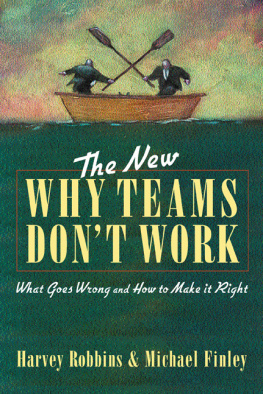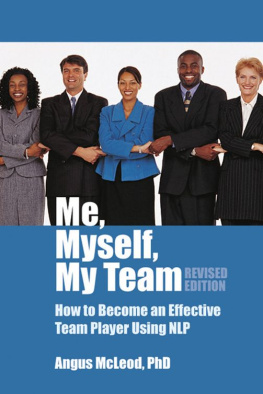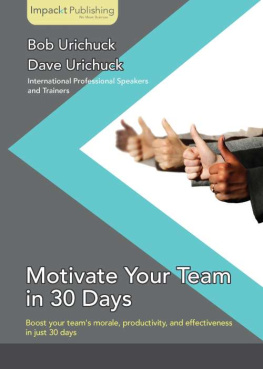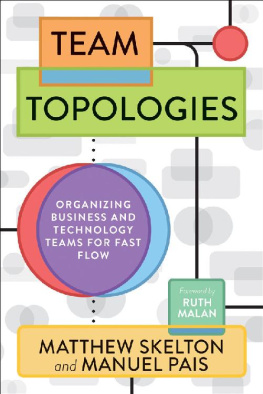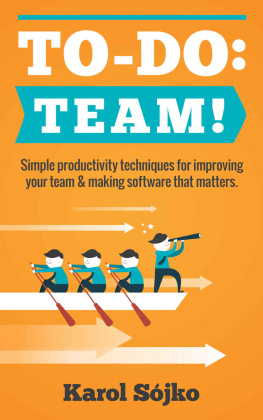
Cover image: Hand iStockphoto.com/saluha, paper iStockphoto.com/nicolewaring
Cover design: C. Wallace
Copyright 2013 by Liane Davey of Knightsbridge Human Capital Solutions, Inc.
All rights reserved.
Published by John Wiley & Sons, Inc., Hoboken, New Jersey.
Published simultaneously in Canada.
Interior Cartoons illustrated by Peggy McEwan.
No part of this publication may be reproduced, stored in a retrieval system, or transmitted in any form or by any means, electronic, mechanical, photocopying, recording, scanning, or otherwise, except as permitted under Section 107 or 108 of the 1976 United States Copyright Act, without either the prior written permission of the Publisher, or authorization through payment of the appropriate per-copy fee to the Copyright Clearance Center, 222 Rosewood Drive, Danvers, MA 01923, (978) 7508400, fax (978) 6468600, or on the web at www.copyright.com . Requests to the Publisher for permission should be addressed to the Permissions Department, John Wiley & Sons, Inc., 111 River Street, Hoboken, NJ 07030, (201) 7486011, fax (201) 7486008, or online at www.wiley.com/go/permissions .
Limit of Liability/Disclaimer of Warranty: While the publisher and author have used their best efforts in preparing this book, they make no representations or warranties with respect to the accuracy or completeness of the contents of this book and specifically disclaim any implied warranties of merchantability or fitness for a particular purpose. No warranty may be created or extended by sales representatives or written sales materials. The advice and strategies contained herein may not be suitable for your situation. You should consult with a professional where appropriate. Neither the publisher nor the author shall be liable for damages arising herefrom.
For general information about our other products and services, please contact our Customer Care Department within the United States at (800) 7622974, outside the United States at (317) 5723993 or fax (317) 5724002.
Wiley publishes in a variety of print and electronic formats and by print-on-demand. Some material included with standard print versions of this book may not be included in e-books or in print-on-demand. If this book refers to media such as a CD or DVD that is not included in the version you purchased, you may download this material at http://booksupport.wiley.com . For more information about Wiley products, visit www.wiley.com .
Library of Congress Cataloging-in-Publication Data:
Davey, Liane Margaret, 1972
You first : inspire your team to grow up, get along, and get stuff done / Liane Davey.
pages cm
Includes bibliographical references.
ISBN 978-1-118-63670-1 (cloth); ISBN 978-1-118-71492-8 (ebk); ISBN 978-1-118-71475-1 (ebk); ISBN 978-1-118-71479-9 (ebk)
1. Teams in the workplaceManagement. 2. Employee motivation. 3. Organizational behavior. 4. Interpersonal relations. I. Title.
HD66.D3762013
658.4'022dc23
2013011038
To the home team: Craig, Kira, and Mac
Chapter 1
Change Yourself, Change Your Team
The Great Promise of Teams
A team can make better decisions, solve more complex problems, and do more to enhance creativity and build skills than individuals working alone.They have become the vehicle for moving organizations into the future.Teams are not just nice to have. They are hard-core units of the production.
Blanchard
Better decisions, increased productivity, and heightened engagement: Teams promise a lot. At their best, teams make many things easier. Good teams solve problems with team members releasing more endorphins than individuals rowing the same race. We're wired for teamwork .
Beyond any physical benefit, teams have an intellectual advantage because they make more information available to you, help you generate more novel ideas, and give you access to more people who can identify good ideasand weed out bad ones.
But the proof of the benefits of teamwork isn't just in the numbers. If you've experienced at least one strong team in your career, you know the feeling in your gut. Being part of a great team is electric. You feel more connected, you feel the upward spiral of ideas getting better and better. You know that a bunch of people have your back. It's easy to get stuff done. Once you've felt what it's like to be on a truly great team, you'll always want that feeling back.
That's the feeling you're trying to evoke when you plaster the office walls with cheery posters of mountain climbers, rowers, and planes flying in formation.
The Sad Reality of Teams
For many people today, the reality of working on a team is nothing like what's shown in those posters. Teams can feel pretty crappy. Instead of collaboration, you're in competition with your colleagues. Instead of diversity of thought and breadth of ideas, there's tunnel vision. Instead of friendship and camaraderie, there's gossip and backstabbing.
And it's not as though the pain is all worth it because you're so much more productive. In many instances, teams are slower and less productive than individuals. Seriously? All that drama for nothing! Teams aren't even more accurate than individuals. And that promise of increased engagement and motivation goes out the window when lack of role clarity, mistrust, and unhealthy conflict sour your relationships. Research has even debunked the value of the cornerstone of teamworkthe brainstorming session. Teams are failing us .
Teams Are Here to Stay
There's no going back to a world where we all did most of our work independently. Teams have multiplied as our work has grown more complicated. If you go way back to 77 AD, one manPliny the Eldermanaged to write an encyclopedia of all that was known to mankind. Today, that's just impossible to fathom! No single person could possibly know all there is to know even in one very specific field. We can't know enough without teams .
The huge increase in the use of teams is also part of a seismic cultural change. Command and control organizations didn't need teams to get things donethey had memoranda . The boss sent out a memo and everyone got on board. Yes, sir, right away, sir! When was the last time you saw a memo? Today, our organizational cultures are more sensitive to engagement and buy-in. We have to use influence instead of authority to get things done. Meetings have replaced memos. We can't get things done without teams .
I recently reached out to human resources leaders in 50 large and midsized organizations and asked them whether teams would be less, equally, or more important in the future than they are today. Eighty-nine percent of respondents said that teams would be more (or much more) important in the future. Teams are here to stay .
Teams are the way work gets done in our increasingly complex, fast-paced, global world. They are the basic unit of our organizations and a critical piece of the productivity puzzle. For many of us, our work teams are also the closest thing we have to community in our urban, disconnected, two-hour-commute lives. My teammates are my colleagues, my sounding boards, my friends, and even the aunties and uncles to my two daughters. For both our organizations and ourselves, there is a lot riding on our ability to make teams work.
What I've Learned about Fixing Teams
The problems facing teams are serious, but instead of fixing the serious teamwork problems with serious solutions, most team-building sessions focus on fun or frivolous activities like cooking classes or white-water rafting. I guess the idea is that if you can have fun outside the office, maybe you can recapture the fun back in the office. Unfortunately, it doesn't work that way.
Next page






